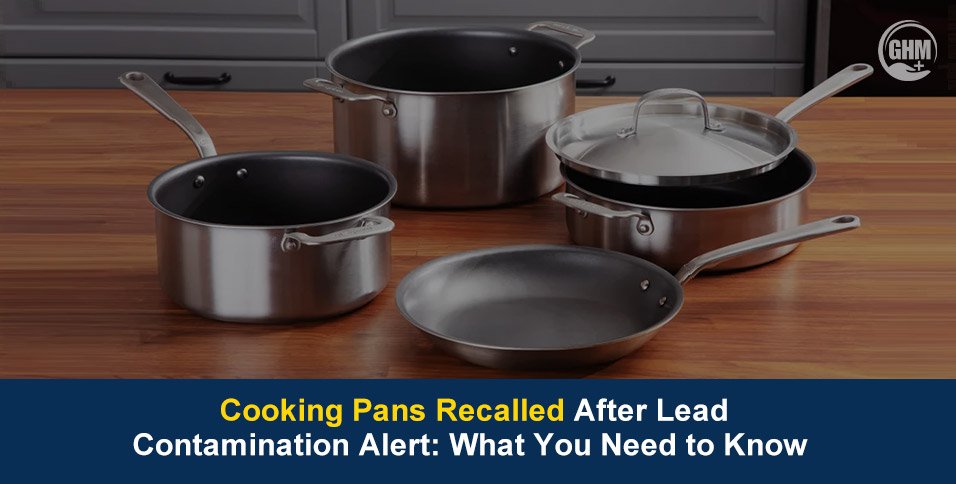In a recent safety announcement, cooking pans recalled across several U.S. states have raised major concerns about lead contamination, prompting urgent warnings for consumers.
The product ‘Chief Brand Milk Pan 24 cm’, distributed by Shata Traders Inc., was voluntarily recalled by them.
While the recall issued focuses on a single product line, experts say this incident is part of a much larger problem: inconsistent manufacturing standards and gaps in contamination control worldwide. It highlights the growing global issue of contamination with toxins in everyday cooking utensils.
The FDA and multiple state agencies are now monitoring the issue and assessing whether similar cookware items require investigation. Consumers are being asked to stop using recalled pans.
Why the Recall Was Issued
Authorities announced that certain imported cookware, distributed by Shata Traders Inc., may contain unsafe levels of lead.
These cooking pans were recalled, sold online and in small retail outlets, making it difficult to track where all units were purchased.
Lead, a toxic heavy metal, can leach into food during cooking, especially with acidic dishes like tomatoes, lemons, or vinegar-based recipes.
Why Lead in Cookware Is Dangerous
When cookware contains lead or other toxic metals, these elements can migrate into food through heat, contact, and chemical reactions. Acidic foods increase leaching. Damaged or worn pans leach even more, leaving a long-term health impact.
- Lead exposure affects the body even in small amounts.
- Lead is a poisonous heavy metal that harms the brain, kidneys, heart, and nervous system.
- Children, pregnant women, and older adults are most vulnerable.
- Toxin contamination can have possible symptoms like fatigue, abdominal pain, irritability, and high blood pressure (in long-term exposure).
As public health experts often point out, there is no safe level of lead exposure.
Why This Recall of Cooking Pans Needs More Attention
As the cooking pans were recalled over contamination, the real issue runs deeper. Many low-cost cookware items imported into the U.S., South Asia, Africa, and the Middle East are made using recycled scrap metal that may already contain contamination with toxins, including lead, cadmium, nickel, and other harmful heavy metals.
In some countries, cookware is produced using melted-down electronic parts, car components, or mixed metal scraps. Without strict regulation, these metals can easily introduce toxic contaminants.
A public health expert from a global NGO explained, “Consumers assume cookware is safe by default, but in reality, low-cost metals often come from recycled materials with unknown contamination levels.”
- Three major gaps create recurring problems:
- Inconsistent Global Standards: Not all countries have strict rules for heavy metal limits in cookware. Some have none.
- Limited Testing of Imported Products: Border testing focuses heavily on food, not cookware.
- Rapid Online Market Growth: Small distributors can sell unsafe products through large marketplaces without proper checks.
Until these structural issues are fixed, consumers may see more recall alerts issued in the coming years.
Conclusion
The cooking pans recalled by Shata Traders Inc. after risks of lead contamination were found in them are more than a simple product defect.
It reflects a broader global problem with unregulated manufacturing practices and weak contamination oversight. While recalls protect consumers in the short term, the long-term solution requires stronger policies, safer production standards, and increased consumer awareness.
By staying informed about such recalls and choosing safe materials for cookware, families can protect themselves from harmful exposure and make healthier decisions in the kitchen.













